Africa’s Energy Output : So Richly Endowed, Yet So Poor!
- Par Kimeng Hilton
- 10 août 2025 15:25
- 0 Likes
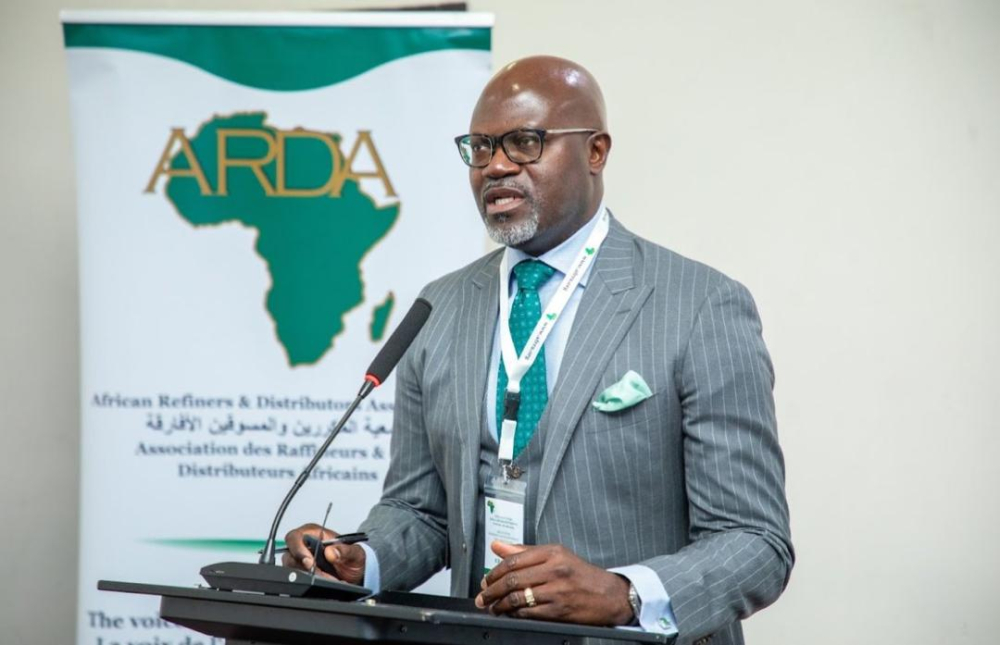
Africa presents an amusing - or better said, sad - reality. The continent is so blessed with huge reserves of petroleum energy, but often lacks fuel. A paradox Anibor Kragha insists can be corrected - if the right measures are put in place.
A new narrative suddenly cropped up. And before you knew, it was on everyone’s lips. It began with government officials. And before long, it caught the interest and attention of almost everyone. Probably because they found in the narrative a good excuse. Plausible? Perhaps! But not a justifiable reason for what was happening then.
Cameroon, Africa-wide Scenario
Another thing, most people came to hear of this country - for the first time. A country on which their daily woes were now being blamed. Where is the country located? How far is it from home? These, and many more questions, the new “discoverers” did not bother to find out. All they were more concerned with was the biting impact of the “afflictions” this country had suddenly heaped on them. Affecting virtually every sector of national life.
Too Far To Bother?
And so was it in the aftermath of the Russian invasion of Ukraine on February 24, 2022. Except for a few informed people in Cameroon, the war was not initially the concern of many. After all, both Russia and this “new” country, Ukraine, were too far away to bother about. But this thinking changed immediately after the Cameroon government announced the fuel crisis was caused by Ukraine war. Because contractors could not import refined petroleum products. It was the same excuse for the lack of bread in grocery shops. And before long, taxi and bus drivers, and vendors of virtually every item raised their fares and prices sharply, saying it was caused by the war in Ukraine!
Inexcusable Excuse
Funny as it sounded, there was some truth in this claim. The hike in the prices of imported petroleum products affected every sector of the economy. This was, and is still a paradox of sorts for Cameroon. The country is one of Africa’s major crude oil producers. But now imports all of its petroleum products. The country’s State-owned SONARA oil refinery was ravaged by an inferno on May 31, 2019. Even before SONARA suffered the fire accident that completely crippled its refining capacity, Cameroon had been importing most of its petroleum products. Because SONARA, had over the years, seen its refining capacity gradually dwindle.
Continental Tragedy
The situation described in the foregoing paragraphs is representative of Africa. A continent so endowed with huge oil and gas reserves. Yet often caught in the web of economic stagnation and endless vehicle ranks at filling stations because many countries continue to depend on imports of petroleum products. The very product they themselves produce, export – only to import at higher prices! For want of refining facilities and dwindling refining capacity!
Possible Scenario
“A 30-day shutdown of fuel imports would cripple the continent - but it could also be the wake-up call Africa needs. This isn’t just a supply chain risk anymore; it marks a strategic inflection point. The choice is clear - remain exposed to external shocks or seize the moment to invest in refining capacity, infrastructure, and workforce development to secure lasting energy sovereignty,” insisted Anibor Kragha, the Executive Secretary of the African Refiners and Distributors Association, ARDA. Anibor spoke earlier this year at ARDA’s 19th annual conference or ARDA Week in Cape Town, South Africa from April 7-11, 2025. Whose theme was “Africa first!”
“War Cry”
“Refine, baby, refine,” has become the rallying cry of Kragha in recent years. But this goes beyond fuel – it’s about building the backbone of industrialisation, deepening regional integration, and unlocking shared prosperity. With the right leadership, Africa can transform today’s dependency into tomorrow’s strength.
Possible Way Out
Building modern, resilient refining systems won’t happen overnight, but coordinated action and bold investment can, over the next decade, deliver the energy security needed to power inclusive, sustainable growth across the continent. Fuel by fuel. Refinery by refinery. Africa must power its own future – not in reaction to crisis, but in pursuit of opportunity, Kragha emphasised.
So Endowed, Yet Doomed?
Africa is rich in crude oil, but suffers from a persistent lack of refining capacity. The continent hosts over 40 refineries, yet many are outdated, under-utilised, or idle. Nigeria, Africa’s top oil producer, has a nominal refining capacity of 1.1 million barrels per day, including the new 650,000 bpd Dangote Refinery. Still, it relies on imports for over half its fuel needs.
Same In Congo Brazzaville
Across the continent, crude production outpaces refining. During the Congo Brazzaville Energy and Investment Forum, plans were announced to double the country’s crude output to 500,000 barrels per day. But the CORAF Refinery in Pointe Noire can currently process only 24,000 barrels per day, with a planned increase to 40,000. Which is still far below potential despite proximity to key markets like the DRC.
Rising, Unmet Demand
Meanwhile, demand is rising fast. Africa’s population is projected to hit 2.5 billion by 2050, with energy needs expected to double. This dependence on imported refined products undermines economic sovereignty, widens trade deficits, destabilises currencies, and impedes industrialisation. It also threatens the goals of the African Continental Free Trade Area, AfCFTA by reinforcing external dependencies rather than building internal resilience. Addressing this imbalance requires a coordinated, continent-wide response - one that ARDA has already begun to shape.
Overexposed
Despite producing more than 5 million barrels of crude oil daily, the continent still imports over 70 per cent of its refined petroleum products. The truth is, this dependence leaves Africa dangerously overexposed. “If imports were to stop, the collapse wouldn’t just be technical - it would be systemic. Today, Africa is deeply reliant on fuel imports, leaving it exposed to shocks with immediate and far-reaching consequences,” Anibor Kragha underscored.
Energy Security As Lifeline
The 2025 ARDA Week conference theme, “Africa First,” reflects the African Refiners and Distributors Association’s enduring vision for the continent to take charge of its own energy future. Refining, distributing, and powering its economies on its own terms. “Energy security isn’t a luxury - it’s a lifeline. Without energy sovereignty, there is no sustainable development. This is about more than infrastructure - it’s about Africa’s future,” Kragha warned. To avert the economic paralysis that a sudden halt in fuel imports would trigger, ARDA is leading a continental strategy focused on five pillars.
Five-pronged Strategy
These are upgrading and scaling refining capacity through resilient, commercially viable projects. Harmonising fuel specifications and regulations to unlock intra-African trade. Attracting investment through transparency, bankable projects, and risk mitigation frameworks. Developing infrastructure - pipelines, depots, storage terminals, LPG bottling plants and logistics networks. And building human capital in regulation, engineering, finance, and operations.
Liquefied Petroleum Gas
One flagship initiative is expanding access to clean LPG in hou...
Cet article complet est réservé aux abonnés
Déjà abonné ? Identifiez-vous >
Accédez en illimité à Cameroon Tribune Digital à partir de 26250 FCFA
Je M'abonne1 minute suffit pour vous abonner à Cameroon Tribune Digital !
- Votre numéro spécial cameroon-tribune en version numérique
- Des encarts
- Des appels d'offres exclusives
- D'avant-première (accès 24h avant la publication)
- Des éditions consultables sur tous supports (smartphone, tablettes, PC)






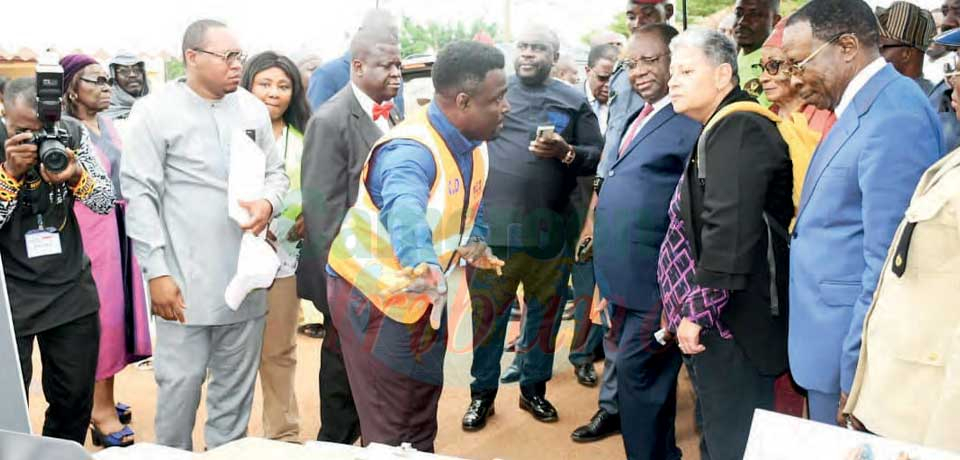
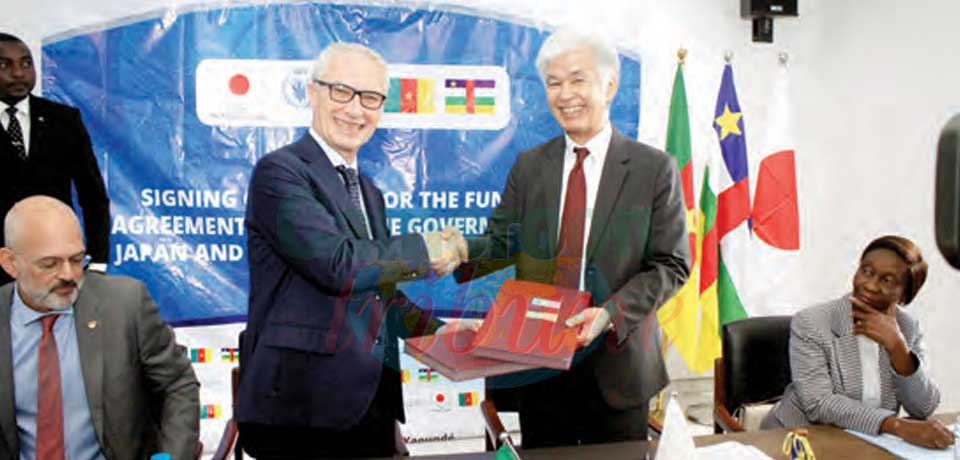
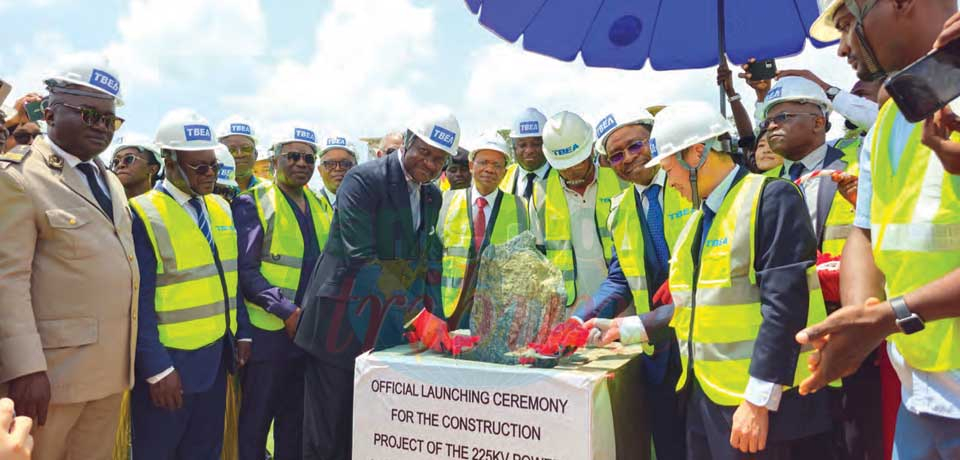
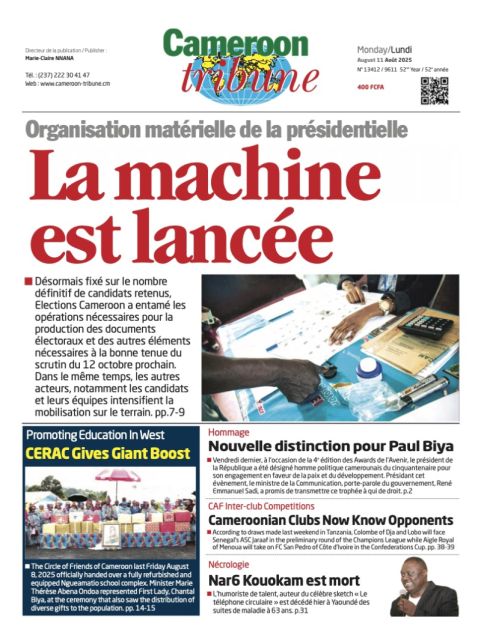




Commentaires